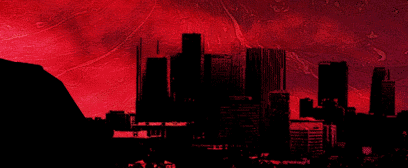


Los Angeles Times
By David C. Nichols , Special to The Times
In 1992, Assembly of God minister Keenan Roberts reclaimed Jerry Falwell's concept of replacing secular Halloween motifs with graphic realizations of sinful behavior. Roberts' outreach has spawned about 3,000 houses nationwide, inspiring "Hell House," George Ratliff's 2001 documentary. That film spurred co-directors Maggie Rowe and Jill Soloway to create the conversion subversion of "Hollywood Hell House."
Audiences enter the Steve Allen Theater from upstairs, descending through the transformed space to the outer courtyard. During this scant, vivid trek, sin's wages erupt with Grand Guignol gore, from the notorious abortion scene to the outrageous take on AIDS patients. All congeals in Hades, where grisly punishments preface a salon with Satan, followed by an invitation from Christ. It ends to Christian rock in the rec room, with a Pin the Sin on Jesus game, "Praise the Vote" registration forms and a beatific minister's wife.
By replicating the Abundant Life Christian Center playbook with ruthless fidelity, this industry-packed interactive théâtre vérité affords fundamentalism its own devastating self-comment. Under Amit Itelman's haunted house direction, the technical team goes for broke, from production designer Jerry Buszek's drapes and dioramas to lighting designer Steve Pope's black lights.
At the reviewed performance, Bob Dassie's demon guide and Eric Waddell's church doyenne framed the ensemble's total commitment. "Six Feet Under's" Justina Machado made a shrieking human sacrifice, while Matt Price's metal head and co-producer Becky Thyre's date-rape victim met eternity with deadpan conviction.
Bill Maher's Satan, a casting coup, ad-libbed with devilish wit as the crowd blocked this guest slot's cue cards. When Andy Richter's cuddly Jesus assumes Lucifer duties during the run, Maher should assay Christ, in memory of the Fairness Doctrine.
Penn and Teller, Richard Belzer, Traci Lords and Sarah Silverman (as
abortion recipient Chrissy) are future names in a starry rotating roster.
This aspect coupled with the political implications creates a hot-button
cultural touchstone for the polarized present.